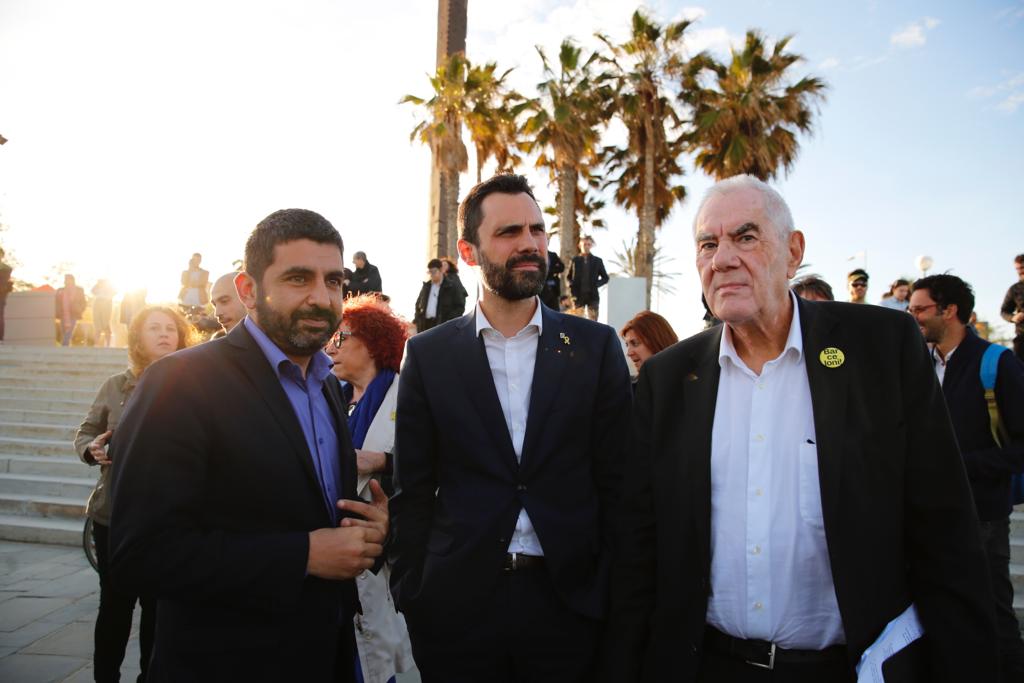Alarms are sounding. The judge of Barcelona investigative court number 32 has issued a temporary suspension of the investigation into Pegasus-software espionage aimed at two Catalan pro-independence politicians of the ERC party, the former parliamentary speaker, Roger Torrent, and Barcelona city councillor, Ernest Maragall, due to the lack of a known author of the offence, and while it waits for the arrival of the rogatory information requested from abroad. The lawyer for both politicians, Andreu Van den Eynde, called on judge José Antonio Cruz de Pablo to overturn this decision and, in fact, go in the opposite direction, extending the investigation opened in October 2020 to include the remaining complaints of new victims who have presented complaints over the mass espionage against the Catalan independence movement, as certified by the Citizen Lab group in the Catalangate investigation. "This resolution could frustrate the expectations for investigation that the victims may have," warns the lawyer.
Judge Cruz de Pablo ordered a pause in the first Pegasus case on May 18th, two weeks after the complaints from Òmnium Cultural and the CUP arising from the Catalangate investigation reached him, with the demand for him to investigate the violation of their rights to privacy and the secrecy of their communications. Without assessing the connection of the alleged espionage in the different cases, he sent them to the senior judge's office, which is the normal procedure for the distribution of unrelated complaints among Barcelona's 33 investigating courts. Òmnium's case fell to the court number 21, where specialist IT crime prosecutor, Roberto Valverde, recently informed the judge that he agreed to investigate the question of who perpetrated the violation of their rights, but declined to pursue a case against the Israeli company NSO, owner of Pegasus, due to a lack of jurisdiction; that is, it is outside Spain. And in the CUP party's complaint, initially presented before investigative court number 22, the prosecutor considers that it should not be added to the investigation of the Torrent and Maragall case in court 32, since it is not known whether both cases have the same author. The lawyer Benet Salellas, on behalf of Òmnium and the CUP, demanded the issuing of a European Investigation Order to demand information on the NSO company from Luxembourg, where it has a European subsidiary, considering the Israeli firm to have been a perpetrator of the espionage and not to have monitored the proper use of its malicious software, something it claims to do when making sales to governments.
Demands
Now, in the appeal against the suspension of the Torrent and Maragall case, which became known today, their lawyer Andreu Van den Eynde reminds the judge that "legally, there is no provision for suspension provided for in the case of slow investigations", and therefore asks the judge to revoke the interim ruling and "work to make the investigation faster." The ERC lawyer added that it is not an investigation that is pending "only" the reception of the rogatory information from abroad on the NSO company, but that "there are new factors of interest in the case", in reference to "the evidence of mass espionage" and the laying of complaints by new victims and, therefore, the request for new evidence. "It is common sense that the criminal justice system cannot maintain open in parallel a number of different investigations for the same matters and directed against the same bodies or persons and that it would not make sense for 65 different courts (provisionally there is talk of mass espionage against 65 people) to send 65 rogatory letters to ask for the same data", he affirms in the appeal.
Connectivity
The lawyer insists that there is "connectivity" between the espionage lawsuits and that is why the case of Torrent and Maragall, who were alerted by the WhatsApp company that their phones had been hacked, go together. He also states that the complaints of the new ERC party victims have fallen to Barcelona investigative court number 24, where a request has already been made to join them to the case in investigative court 32. And the complaint of those affected by the Catalan National Assembly (ANC) is also being heard in court number 32, according to judicial sources.
Van den Eynde states that in the investigation of Torrent and Maragall, a rogatory commission from Israel is expected to ask the NSO company if the mobile phones of the two politicians were hacked using the company's software. And also that on February 4th, 2021, the translation of the rogatory commission from Ireland was received by the court, stating that the data claimed is located in the United States, “without the court having taken any decision on whether to obtain [the data]”. And after a year and a half without any action, judge Cruz asked for Torrent and Maragall's cell phones, in case they needed to be analyzed, but without entrusting them to any expert. The victims no longer have these devices, which belong to the Catalan Parliament.
More appeals are expected from the espionage victims to attempt to lift the Pegasus investigation out of its current deadlock.

